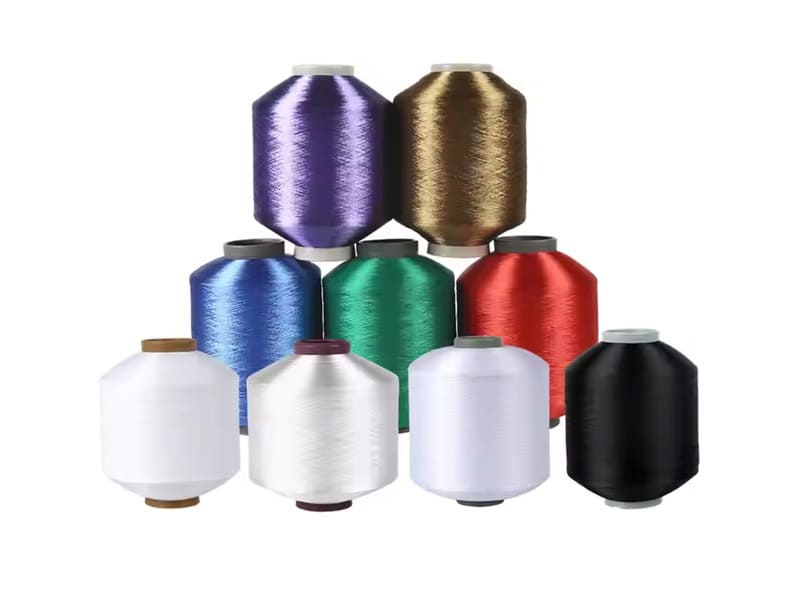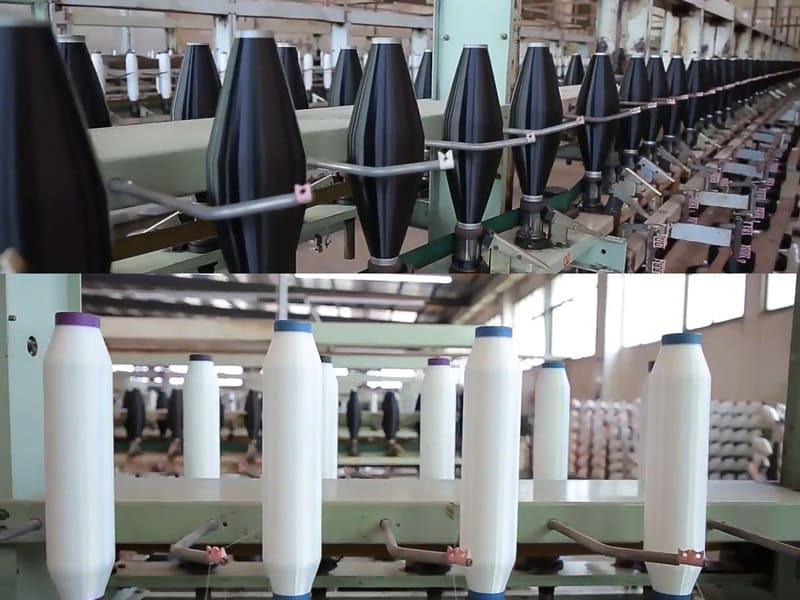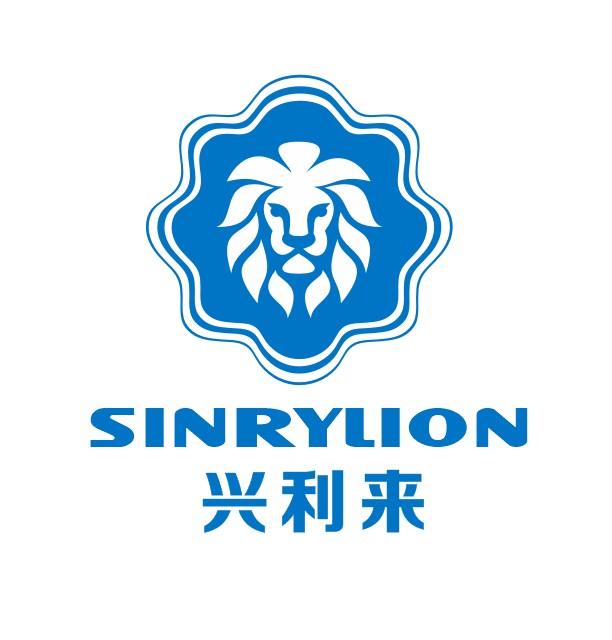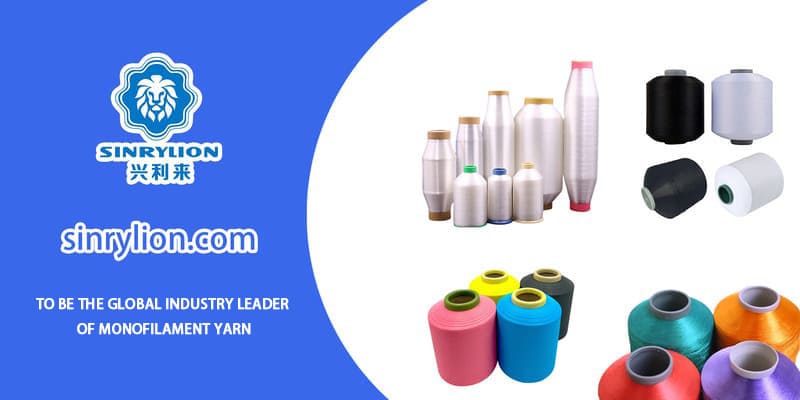Inside the Twisting Process of Polyester Yarn
2025-08-04
What Is Polyester Twisted Yarn and Why Does It Matter?
Polyester twisted yarn refers to polyester filament or staple yarn that has been twisted to a specific degree, enhancing its strength, elasticity, and abrasion resistance. This process is widely used in apparel, home textiles, and industrial fabrics, making it an essential component of the textile manufacturing chain.
Polyester itself boasts excellent abrasion resistance, quick-drying properties, and chemical stability. Twisting further enhances these properties by aligning fibers more tightly, improving tensile strength and durability while reducing fuzz and breakage. That’s why brands and industrial ribbon producers alike often opt for twisted versions of polyester yarn.
Common application scenarios include:
- ● Woven Label: Requires stable, fine yarns for detailed pattern formation.
- ● Ribbon Yarn: Used for decorative trims and gift packaging; requires flexibility and tension.
- ● Badge: Twisted yarn enhances the clarity and stability of embroidered lines.
- ● Jacquard Fabric: Proper twist improves 3D texture and wrinkle resistance.
- ● Shoe Upper: Needs yarns that are strong, stretch-resistant, and durable—especially in activewear or casual shoes.
Twisting is not just a mechanical enhancement; it is a fundamental method for upgrading the functionality and market value of polyester yarn.

Core Twisting Technologies in Polyester Yarn Manufacturers in China
For modern polyester yarn manufacturers in China, twisting is no longer a single-step process but a complex system involving multiple sub-processes. Here are some commonly used techniques:
- ● Ring Twisting: A traditional method involving spindle rotation. It yields high and consistent twist levels, ideal for premium fine yarns. Though lower in output, it ensures uniformity and softness.
- ● Two-for-One Twisting (TFO): The most popular high-efficiency method today. It allows two yarns to be twisted simultaneously, improving output while lowering energy and labor costs—ideal for standardized, bulk production.
- ● Air Jet Twisting: Uses compressed air to wrap fibers, creating a stable structure. This method produces textured, soft yarns widely used in functional or decorative textiles.
- ● False Twist Texturing: Heat sets twisted yarn via rollers, then cools it rapidly to retain shape. Common in stretch fabrics like yoga wear and swimwear.
Different twisting methods suit different polyester yarn types and end uses. Manufacturers often combine techniques based on client needs to ensure optimal performance and aesthetic appeal.

Quality Control in the Twisting Process
The quality of polyester twisted yarn directly affects weaving results and final product performance. Therefore, a strong quality control system is essential for any professional polyester yarn manufacturers in China.
Many manufacturers adopt international certifications such as ISO9001 (quality systems) and OEKO-TEX Standard 100 (environmental safety), ensuring products are free of harmful substances and market-compliant.
Key checkpoints in the twisting process include:
- ● Twist Level Testing: Ensures there is no over- or under-twisting.
- ● Tensile Strength Testing: Critical for industrial applications.
- ● Abrasion Resistance Testing: Simulates real-world wear-and-tear for durability assurance.
Some manufacturers also operate in-house labs with real-time monitoring and auto-calibration systems, improving batch consistency.
Are you looking for affordable polyester twisted yarn? You have come to the right place. We are committed to providing our customers with quality products and the best value. Your satisfaction is our motivation. Send an email to janekwok@xll-group.com today and our manufacturer will be happy to serve you.
|
Contact Us |
Email: janekwok@xll-group.com |
Whatsapp: +86-15980572980 |
How to Choose Reliable Polyester Yarn Manufacturers in China
For textile brands and traders, selecting the right polyester twisted yarn partner involves more than just pricing. Here are key factors to evaluate:
- ● Technical Transparency: Look for suppliers that openly share twist range, tension parameters, testing methods, and machinery used.
- ● Certifications: ISO, OEKO-TEX, and GRS certifications reflect international compatibility and standardization.
- ● Sampling & Testing: Ability to provide samples and lab data helps validate product quality.
- ● Capacity & Delivery: A manufacturer’s production scale and inventory stability should support year-round supply.
- ● Customization Support: Ability to adjust twist level, sheen, hand feel, or color signifies production flexibility.
Using these criteria, buyers can mitigate risks like delivery delays or inconsistent quality and foster long-term supply partnerships.
Real-World Use Cases: How Polyester Twisted Yarn Meets Specific Industry Demands
Polyester twisted yarn is used across diverse textile sectors, each with unique performance expectations. Twisting is the key to meeting those varied needs. Here’s how:
- ● Woven Label: Twisted yarn maintains clarity and structural integrity during high-speed weaving.
- ● Ribbon Yarn: Gains better elasticity and strength, preventing deformation or fraying.
- ● Badge Embroidery: Uniform twist reduces thread breaks and fuzz, resulting in cleaner, fuller visuals.
- ● Jacquard Fabric: Improved yarn structure enhances definition and reduces pilling.
- ● Shoe Upper: Higher twist increases durability and resistance to bending or impact.
 English
English 한국어
한국어 বাংলা ভাষার
বাংলা ভাষার हिन्दी
हिन्दी Türkçe
Türkçe русский
русский





